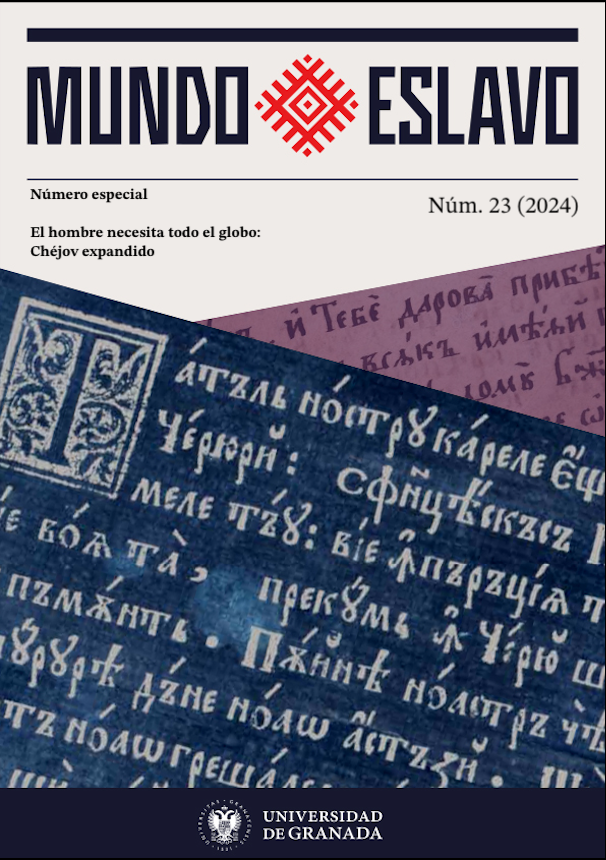Ulítskaya, L. (2022). Sóniechka (Trad. Marta Rebón). Barcelona: Anagrama.
DOI:
https://doi.org/10.30827/meslav.23.30343Abstract
Sóniechka[1] (en ruso, Сонечка) es la primera experiencia novelística de Liudmila Yevguéniyevna Ulítskaya (en ruso, Людми́ла Евге́ньевна Ули́цкая), publicada en 1992 en la revista literaria Novy Miry y galardonada con el Premio Médicis de Francia cuatro años después. Escritora de novelas (El enigma de Kukotsky, La carpa verde), antologías de cuentos (Gentes de nuestro Zar, Basura sagrada), guiones teatrales (Confitura rusa), nació en 1943 en los Urales, aunque creció y se educó en Moscú e Israel. Estudió en la Universidad Lomonósov, obtuvo el título de Bióloga y trabajó en el Instituto de Genética General de la Academia de Ciencia de la URSS, de donde fue despedida al constatarse que su máquina de escribir había reproducido literatura censurada por el régimen soviético.
Editada por primera vez al español en 2007 y traducida directo del ruso en 2022, Sóniechka es una novela corta, sin separaciones en capítulos y estructurada por intervalos espacio-temporales, donde se retrata el devenir adulto de Sonia[2] Iósifovna, una muchachita presentada como frágil, a quien la autora nos la presenta en una relación intensa con la literatura, en la cambiante Bielorrusia de los años treinta. Entre libros rusos y extranjeros, sus tesoros existenciales, ella sobrevive gracias a la lectura, su refugio frente a lo riguroso de una vida enmarcada en la violencia de la guerra y la miseria que acarrea la época.
[1] El sufijo “ечк” en ruso se usa como diminutivo.
[2] Sonia es diminutivo de Sofía
Downloads
Downloads
Published
How to Cite
Issue
Section
License
Copyright (c) 2024 Mundo Eslavo

This work is licensed under a Creative Commons Attribution-NonCommercial-ShareAlike 4.0 International License.

CC BY-SA: This license allows reusers to distribute, remix, adapt, and build upon the material in any medium or format, so long as attribution is given to the creator. The license allows for commercial use. If you remix, adapt, or build upon the material, you must license the modified material under identical terms.
CC BY-SA includes the following elements:
BY ![]() – Credit must be given to the creator
– Credit must be given to the creator
SA ![]() – Adaptations must be shared under the same terms
– Adaptations must be shared under the same terms
Authors who publish with this journal agree to the following terms:
1. Authors retain copyright and grant the journal right of first publication with the work simultaneously licensed under a Creative Commons Attribution License that allows others to share the work with an acknowledgement of the work's authorship and initial publication in this journal.
2. Authors are able to enter into separate, additional contractual arrangements for the non-exclusive distribution of the journal's published version of the work (e.g., post it to an institutional repository or publish it in a book), with an acknowledgement of its initial publication in this journal.
3. Authors are permitted and encouraged to post their work online (e.g., in institutional repositories or on their website) prior to and during the submission process, as it can lead to productive exchanges, as well as earlier and greater citation of published work (See The Effect of Open Access).













